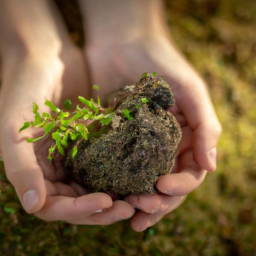Gardening-Help Environment Benefits
How Does Gardening Help The Environment
How Does Gardening Help The Environment?
Gardening is a popular hobby enjoyed by millions of people every year, but it's also an activity that can have a hugely positive impact on our environment. Gardening can reduce climate change, preserve water resources, and create habitats for wildlife. In this article, we will explore the various ways gardening helps the environment while discussing the potential challenges and areas of improvement.
Climate Change
Gardening is one of the most effective ways to combat climate change. Plants naturally capture carbon dioxide from the atmosphere during photosynthesis and turn it into organic material that is stored in the ground. By planting trees, shrubs, and other plants, gardeners can increase the number of plants catureing CO2 and help slow climate change.
Gardening also helps to reduce air pollution. By introducing more plants into the environment, pollutants are filtered from the air more effectively. Additionally, a well-planned garden can act as a natural shade that keeps temperatures cooler, reducing the need for air conditioners and further reducing the amount of energy used and polution produced.
Preserving Water Resources
Growing plants helps to conserve water resources by reducing water run-off and increasing water absorption. By planting trees, shrubs, and other plants, gardeners can reduce water runoff rates. For example, a tree planted in a well-planned garden can reduce runoff rates by up to 50%. Plants also absorb more rainfall than asphalt and concrete, helping to refresh water supplies and reduce flooding. Additionally, planting trees and shrubs strategically can help to control wind-driven rain, further reducing water run-off.
Creating Habitats for Wildlife
Gardening can create safe havens and food sources for wildlife. A well-maintained garden can host a variety of birds, insects, amphibians, and other forms of wildlife. Planting trees and shrubs can form a natural barrier that protects wildlife from predators, while adding flowering plants provides food sources that are critical for many species. Gardens can even help to restore entire ecosystems in cases where existing habitats have been lost.
Challenges and Areas of Improvement
Despite the potential benefits of gardening, there are some challenges and areas for improvement. To ensure that gardening helps the environment as much as possible, gardeners should avoid using chemical fertilizers and pesticides. These chemicals can be toxic to beneficial insects and pollinators that help to maintain our ecosystems, as well as negatively impact air and water quality. Additionally, gardeners should ensure plants are native to their area to prevent the introduction and spread of invasive species.
Final Word
Gardening can have a hugely positive impact on our environment. Through reducing climate change, preserving water resources, and creating habitats for wildlife, gardening can help to protect our planet. To maximize the benefits of gardening, gardeners should strive to garden responsibly and avoid the use of chemical fertilizers and pesticides.

Previous Page
Next Page
